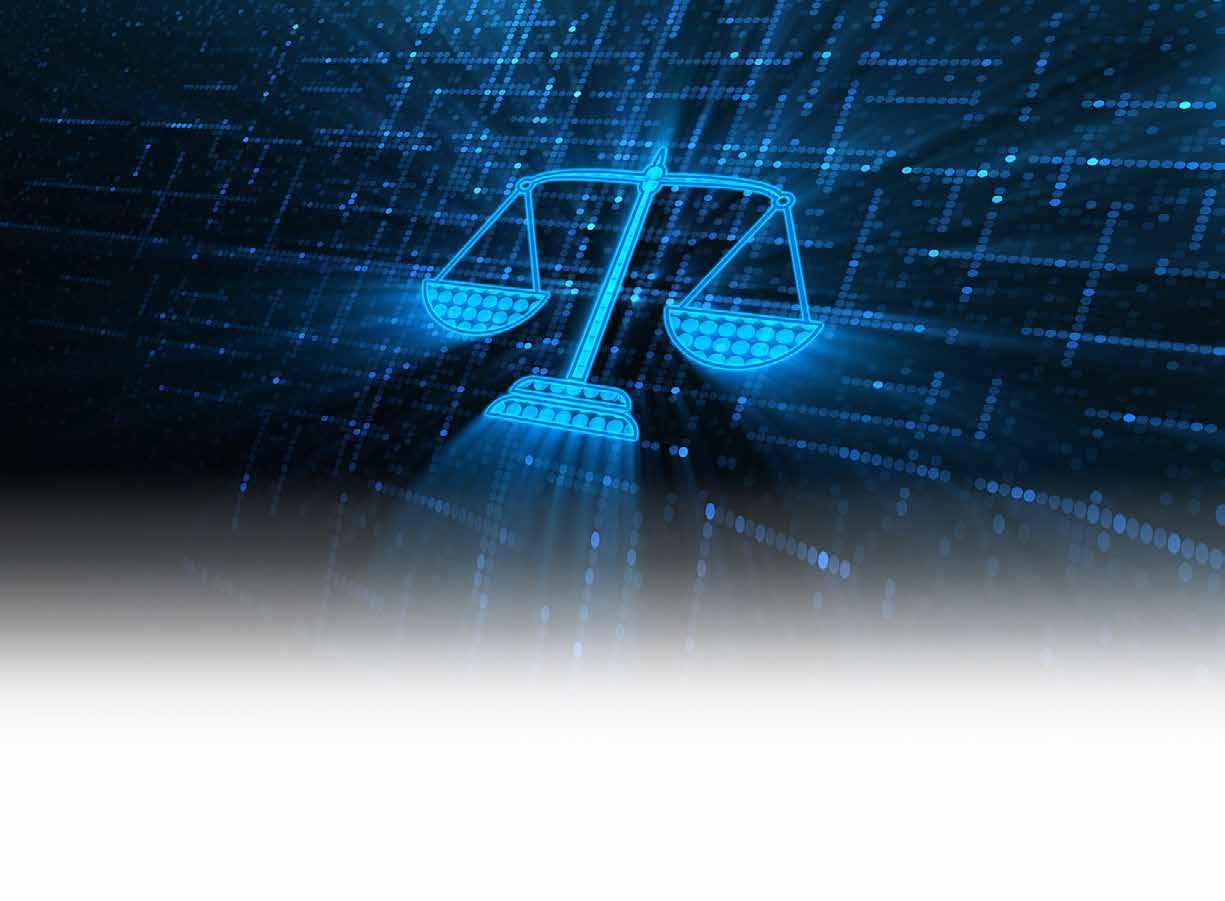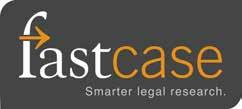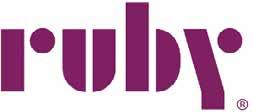

Overview of Member Appreciation Week

❱ Wellness Wednesday

eNewsletter that will include an article from the Judges and Lawyers Assistance Program, Legal Well Being in Action podcast, #fit2practice event and well-being raffle prizes!
❱ Throwback Thursday eNewsletter that will include an article from the Equity in Justice Program, Senior Lawyers Oral History highlights and recognition of our 25- and 50-year attorneys!

Fiesta Friday
Join us for a FREE CLE presentation and social hour! The CLE presentation will by available in person and via webcast. The State Bar Center will host up to 150 in-person attendees. All are welcome to attend the post-presentation reception!

The Tech Never Stops
2.0 EP
Why does Tik Tok matter to lawyers? Can deep fakes sink our clients? The legal issues with the latest trends in technology impact the world of legal ethics in ways that you might not have considered. In this program national speaker Stuart Teicher (“the CLE Performer”) talks about all of the latest dangers, including:
Confidentiality and Rule 1.6
Deception and Rule 8.4
Supervision, Rules 5.1 and 5.3, and more
SO WHAT’S THE DEAL WITH Law Practice Management Software?
Law practice management software (“LPM software”) is technology designed to improve a law firm’s dayto-day operations. Good LPM software can help organize and manage cases, files, documents, tasks, calendars, deadlines, client and third-party contacts, time and billing and overall law firm performance. Of course, there are numerous LPM software vendors, and LPM software is not a “one size fits all.” LPM software features vary from company to company and even within the same company might be customizable to fit a particular need. Common or desirable features may include:
1. Case or Matter Management: A centralized database for the overall organization and maintenance of each matter, case and/or project handled by the firm. Cases, matters and projects and all the documents and files within each are organized in a consistent, easily accessible and readily retrievable manner. The database will contain both current, active matters as well as closed matters.
2. Document and File Management and Creation: Allows electronic storage and organization of documents within each legal matter in a consistent manner. Ideally, the LPM software interfaces with other law firm software, such as a PDF document creator and a word processing system, to allow creation and editing of documents within the overall organizational scheme. Further, some LPM software allows automation of documents that are routinely used so that the user can answer a few simple questions or fill in a few fields and have a final product efficiently prepared.
3. Client and Contact Management and Communication: A comprehensive list of all of the firm’s current and former clients and their contact information, as well as a list of third-parties, courts, or other persons or entities involved in matters handled by the firm. This will allow for a robust conflict check by the firm on all matters. Ideally it should also include the ability to save emails directly to client files. Some LPM software also provide a secure client portal for direct communication with clients, the ability to save those communications directly to the client file and the ability for the law firm or the client to share documents with the other.
Some LPM software also includes a client app which the client can load onto a smartphone or tablet and use to check case/matter status, upload and send documents to the law firm, and communicate with the firm.
4. Task Management: Allows the preparation and organization of accessible to-do or task lists, including to whom projects and tasks are assigned, and relevant deadlines.
5. Calendaring: Offers a firm-wide master calendar used by and accessible to all attorneys and staff to keep track of all important dates and deadlines. Also allows individual calendars for each user that can be, and for work matters should be synced to the master calendar. Ideally can also be synced with other software vendor calendars (e.g. Outlook or Google Calendar), but is itself a full calendaring system, not just an integration with or reliant upon other vendor calendars.

6. Conflict Checking: At a minimum, searches the case/matter database and the client and contact database to identify potential conflicts.
7. Time, Expense, Billing and Accounting: Allows input and tracking of billable time and expenses associated with each matter and generates resulting client invoices. Some allow the client to pay directly through the software by integrating bank account and credit card information. Most LPM software includes a trust accounting component to create and maintain a trust account general ledger, individual client ledgers and monthly reconciliations of the ledgers and the adjusted bank statement balance. Some also include an internal accounting system and, if not, the ability to integrate with other accounting applications (e.g. QuickBooks) for firm-wide accounting needs, including the tracking of your operating account, overhead expenses and revenue.
8. Law Firm Insights/Reports: Allows analysis of profitability, overhead expenditures, workload and workflow among attorneys and staff, productivity and a host of other information to make the law firm more efficient and profitable.
One early decision for all firms/lawyers considering LPM software is whether to use a cloud-based system or an on-site system. Each has its own advantages and disadvantages.
Regardless, both require a law firm or lawyer to understand how data is backed up and resorted in the event of a system failure, and to ensure that confidential client information is properly stored and secured. In short, attention to data preservation and security is critical when selecting and operating LPM software.
A second consideration when choosing LPM software is whether it is compatible with the firm’s existing technology. For example, will the LPM software seamlessly integrate with the current word processing system? The ability to integrate or sync different software platforms can improve overall efficiency.
A third consideration is what type of customer support the lawyer or law firm anticipates needing. Will the LPM software vendor offer training and post-sale support if problems arise?
Ultimately, choosing the right LPM software requires a law firm or lawyer to determine what is important to and necessary for the firm/lawyer and matching those needs with the LPM software that best satisfies those needs. There are many LPM software vendors and before purchasing, consider doing some research through sites like Capterra https://www.capterra.com/law-practice-management-software/, or Lawyerist https://lawyerist.com/reviews/law-practice-management-software/, or Software Advice https://www.softwareadvice.com/legal/ to identify different features and analyze client reviews of a variety of LPM software products.1
Endnotes
1 This article is provided to members of the State Bar of New Mexico for use when considering whether to use law practice management software. This article is intended for informational purposes only and is not intended to nor does it constitute legal advice to a lawyer or law firm, nor is it intended to nor does it constitute the formation of an attorney-client relationship between any person or entity and any employee of the State Bar of New Mexico. Further, this article does not constitute an endorsement of or recommendation for or against purchasing law practice management software, nor purchasing such software from any particular vendor or company. Moreover, this article is not meant to be an exhaustive analysis of all features, benefits and risks of law practice management software and is not a substitute for independent research. Before purchasing law practice management software a lawyer or law firm should carefully research various software products and choose the one the best suits that lawyer’s or firm’s particular needs. A lawyer or law firm might also consider obtaining advice from an IT professional when deciding on any technology or software purchase.
Sample Technology Checklist

Rule 16-101, NMRA provides that lawyers shall provide competent representation to clients. While maintaining competence has always required a lawyer to stay abreast of changes in the law and its practice, in 2013 the New Mexico Supreme Court amended the commentary to Rule 16-101 to instruct lawyers that maintaining competence including staying abreast of the benefits and risks associated with relevant technology. The Court’s amendment reflected the reality that lawyers increasingly rely on technology to accomplish their daily tasks.
But what, exactly, might a lawyer need in terms of technology? That all depends on a variety of factors including, but not limited to:
• the features you need; e.g. case management, calendaring, time and billing, client invoicing;
• the amount of remote access you need when you are off-site; i.e. the amount of telecommuting and remote work you and your staff anticipate;
• the cost.
What follows are some, but not necessarily all types of technology that a lawyer might consider using depending upon the lawyer’s needs and resources. Before selecting any or all, consider doing some research on what is available, the benefits and costs associated with each, and whether it is something you must have, something that would be nice to have, or something that is simply not necessary for your practice. Additionally, when considering and using any technology, keep in mind that one of the greatest considerations associated with a lawyer’s use of technology is whether and in what manner the technology allows the lawyer to maintain client confidences.
Hardware
Connectivity
Marketing Tools
Support
Internal Policies for Technology Use
SBNM is Hear Podcast


SEASON 2: LET’S TALK ABOUT AVOIDING PROFESSIONAL HEARTBURN
In for a penny, in for a pound as they say! Tune in to hear from our Lawyers Professional Liability Committee members as they discuss common mistakes lawyers make, malpractice carrier concerns, red flags with clients and much more. A great listen for new and established attorneys alike!
Presented by: William Slease, State Bar of New Mexico; Jeannie Hunt, Brant & Hunt Attorneys, and Benjamin Davis, Davis Kelin Law Firm LLC
SEASON 1:
EP. 7 LET’S TALK ABOUT LEVERAGING CULTURE IN A SOLO OR SMALL FIRM EP. 8 LET’S TALK ABOUT YOUR CLIENT FUNNEL IN A SOLO OR SMALL FIRM
For these companion episodes, a compelling panel of solo and small firm attorneys talk about the business of running their firms, each from very different perspectives. The panelists are members of the State Bar’s Solo and Small Firm Section and law firm owners with 2 to 40 years of practice experience. You’ll learn more about creating your best client funnel, finding new ways to operate your firm’s business side, identifying ideal clients and leveraging firm culture to attract more select work. If you run an SSF firm or might want to hang a shingle of your own someday, these are episodes you won’t want to miss!
Presented by: George Weeth, Academy Compensation Clinic PC; Cindy Silva, Cindy Silva Law LLC; Christopher Templeman, Smith Templeman Law Firm LLC; Moderated by Deian McBryde, McBryde Law LLC
Technology Member Benefits
Clio
Use Clio for client intake, case management, document management, time tracking, invoicing and online payments and a whole lot more. Clio also provides industryleading security, 24 hours a day, 5 days a week customer support and more than 125 integrations with legal professionals’ favorite apps and platforms, including Fastcase, Dropbox, Quickbooks and Google apps. Members of SBNM receive a 10% discount on Clio products.
State Bar of New Mexico
Ethics Hotline
Our Ethics Helpline is available for more immediate assistance. IL may call the helpline and at the recording leave contact information whereby an ethics attorney will call back, usually the same or next business day. These are non NM attorneys for conflict and confidentiality reasons, but are versed in our Rules of Professional Conduct. The call is confidential and the State Bar pays the consultation fee.
LawPay
LawPay is proud to be the preferred payment solution of more than 50,000 lawyers. LawPay is designed specifically for the legal industry. LawPay provides attorneys with a simple, secure way to accept online credit card and eCheck payments in their practice.

Fastcase
Fastcase is a free member service that includes cases, statutes, regulations, court rules and constitutions. This service is available through www.nmbar.org. Reference attorneys will provide assistance from 8 a.m. to 8 p.m. ET, Monday–Friday. Customer service can be reached at 866-773-2782 or support@fastcase.com. For more information, contact Christopher Lopez, clopez@nmbar.org or 505-797-6018.

Ruby Ruby’s friendly, U.S.-based virtual receptionists answer your incoming phone calls, 24 hours a day, just as if they were in your office! Incoming calls go straight to Ruby receptionists who answer with a greeting of your choice. They then connect directly to you (phone, message, voicemail, and more) and keep you up to date on your messages. State Bar members receive an 8% lifetime discount on all plans!

